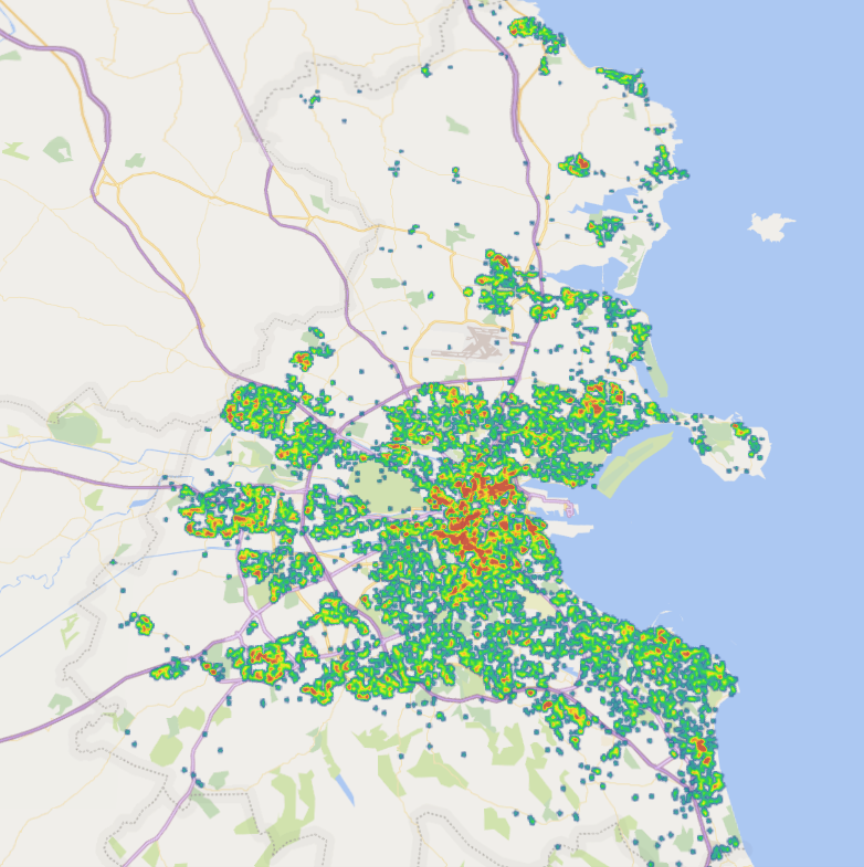Selection of members

Dublin Citizens' Assembly
For the Dublin Citizen’s Assembly, 14,000 households around Dublin city and county received a postal invitation to nominate one adult from that household to apply to become a member. Households were selected randomly from the GeoDirectory database of households, which is the most comprehensive available database of households in the country. Figure 2, below, shows the spread and concentration of invitations across Dublin city and county. Gaps in coverage correspond with low-density population areas with a high proportion of non-unique postal addresses.

Citizens Assemblies are an important form of deliberative democracy. Ireland is widely regarded internationally as being a leader in deliberative democracy. The Secretariat to the Citizens Assemblies is committed to innovation and improving how we manage and operate the Assemblies.
These latest innovations in recruitment methodology are informed by the experience of previous Citizens’ Assemblies in Ireland, and by international best practice. In particular, the OECD Recommendation on Open Government[1] (2017), the OECD Good Practice Principles for Deliberative Processes for Public Decision Making (2020)[2] and other jurisdictions with extensive experience of Citizens’ Assemblies, including Canada and Australia.
In order to continue refining and improving the recruitment methodology for future Citizens’ Assemblies, the Secretariat will conduct a detailed review of the process, including a qualitative and statistical analysis of factors influencing the response rate.
[1] https://www.oecd.org/gov/Recommendation-Open-Government-Approved-Council-141217.pdf
[2] Chwalisz, C. (2020), “Good practice principles for deliberative processes for public decision making”, in Innovative Citizen Participation and New Democratic Institutions: Catching the Deliberative Wave, OECD Publishing, Paris, https://doi.org/10.1787/b40aab2a-en.


